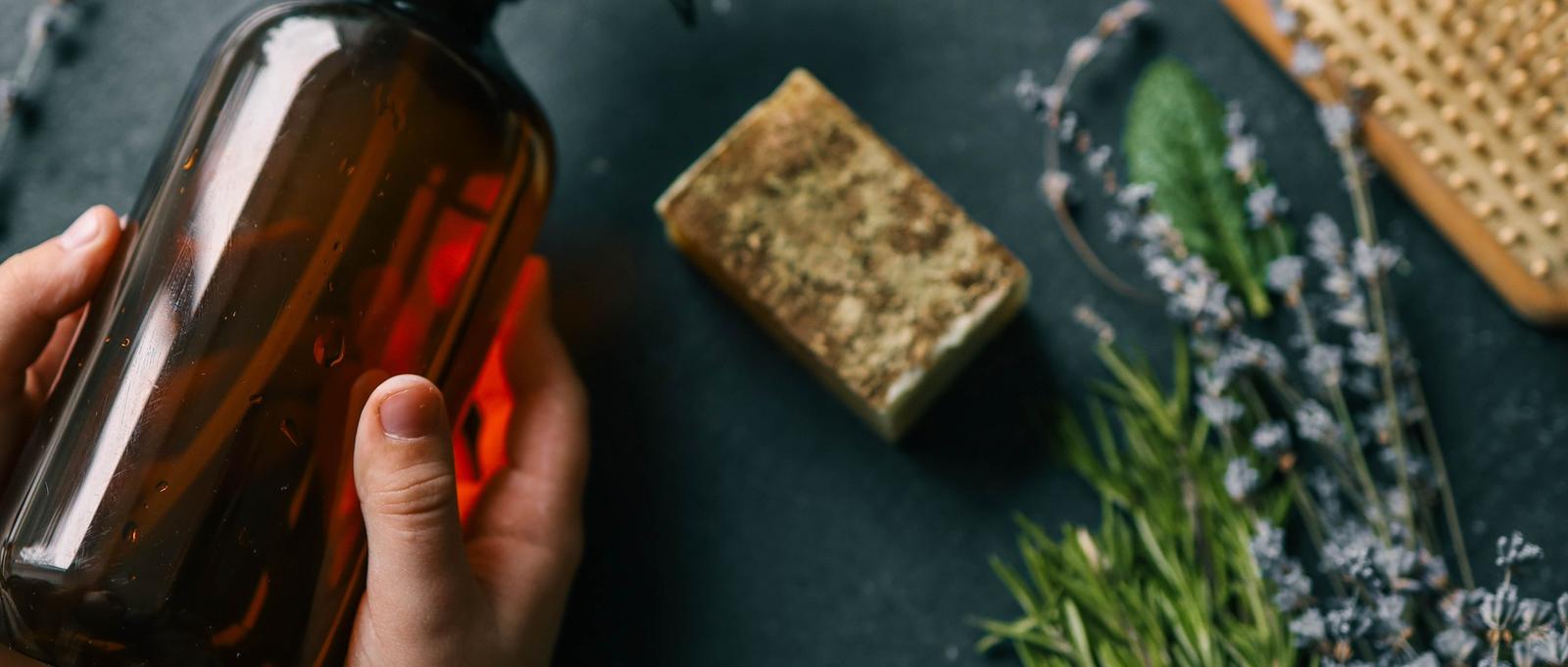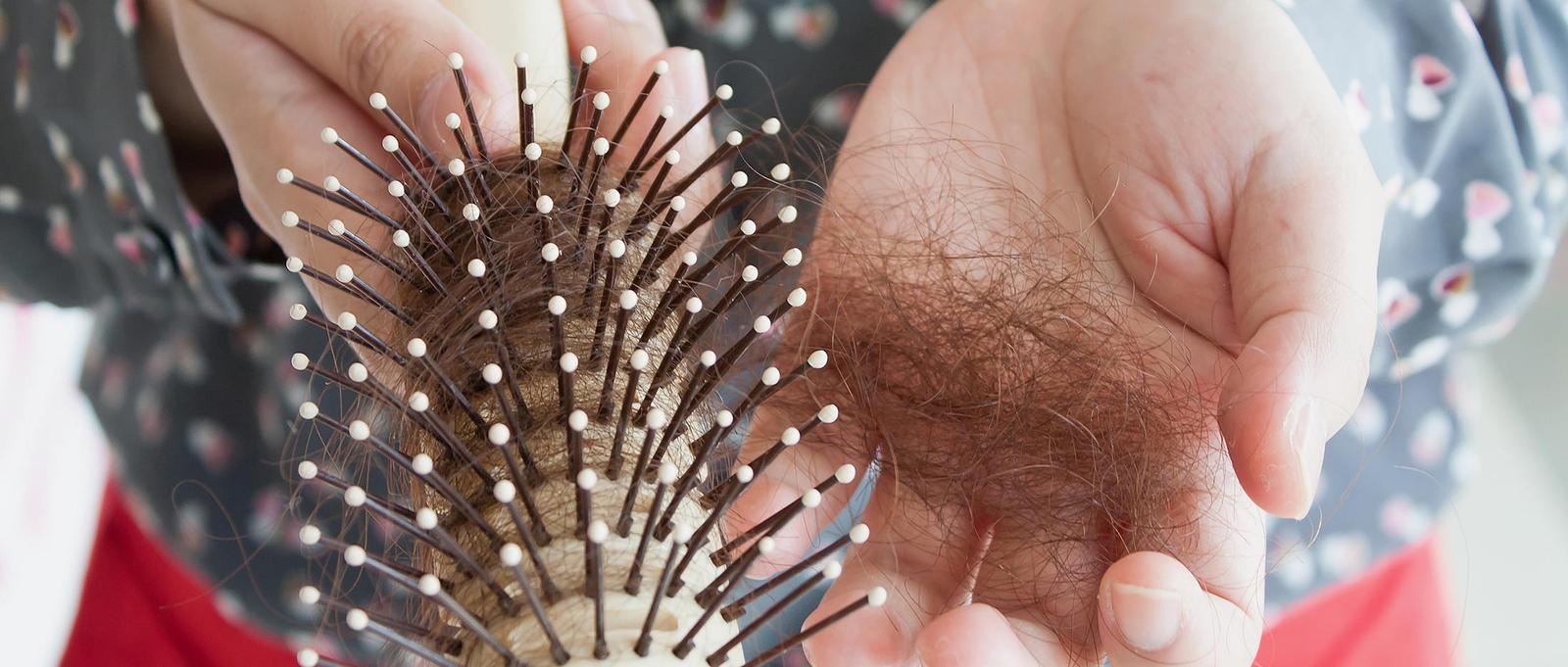
Does rosemary oil actually help hair grow?
Peer reviewed by Dr Krishna Vakharia, MRCGPLast updated by Victoria RawLast updated 3 Dec 2024
Meets Patient’s editorial guidelines
- DownloadDownload
- Share
- Language
- Discussion
We’re always on the lookout for the latest miracle health product - especially if it’s inexpensive and easily found on the high street. And TikTok is full of claims that rosemary oil is a remedy for rapid hair growth. But is there any evidence it works?
In this article:
Continue reading below
What is rosemary oil?
Rosemary oil comes from the rosemary plant, a fragrant herb that grows as an evergreen shrub. It’s known as a food seasoning, but is used in herbal medicines and cosmetics too.
Can rosemary oil help with hair loss?
Using rosemary oil as a hair product has fast-become a hit on social media, with many claiming it has helped treat hair loss and promote growth. There is some evidence to support this.
One study found rosemary oil to be as effective at encouraging hair regrowth as minoxidil, a medicine to treat male pattern hair loss (androgenic alopecia)1 - however this study was small and it is difficult to make any conclusions from it.
Male pattern baldness is a form of hair loss that happens when a by-product of testosterone called dihydrotestosterone attacks the hair follicles. It’s thought that rosemary oil helps to prevent this hormone from attacking the follicles, which allows the hair to grow. The rosemary oil also reduced scalp itchiness too.
A small body of research suggests that rosemary oil might help with other forms of hair loss too. For example, a study suggested that rosemary oil may help to kill certain bacteria, which may help treat hair loss if it is caused by a bacterial infection2. There is no solid evidence, however, that rosemary oil definitely works and should replace standard treatments. Although these studies are promising, it’s hard to judge the effectiveness of rosemary oil based on a handful of small studies.
Dr Sharon Wong, Consultant Dermatologist and Hair Specialist, the MW Clinic, London says: "Rosemary oil is being lauded as a miracle hair growth product, with very little data to back this claim up.
"One study looked at comparing the effects of rosemary oil versus common medical treatment on male pattern baldness," she says. "However there are several flaws with the study that raise the question of its reliability. Furthermore, there is currently no data that can confirm if rosemary oil works on any other forms of hair loss."
Continue reading below
Is rosemary oil safe?
Rosemary oil is a natural remedy, but that does not mean it is safe for everyone. As with any product, some people may be allergic to rosemary oil. Those with sensitive skin may get irritation, rashes or other skin issues when using it.
If you are pregnant or breast-feeding you should not use rosemary oil unless your doctor advises otherwise. As children’s skin is especially sensitive, it may not be suitable for them.
How to use rosemary oil for hair
You should not apply rosemary oil directly to your scalp. Always dilute it with a carrier oil - such as coconut or jojoba oil. For example, mix a few drops of rosemary essential oil with around a tablespoon of your chosen carrier oil.
Before applying, always do a test patch beforehand to check for any allergic reactions, and wash your hair thoroughly afterwards with shampoo.
Continue reading below
What else helps with hair growth?
The treatments available for hair loss depend on the causes of the problem. Some types of hair loss may be genetic - such as male and female pattern baldness. Other causes include illness, stress, cancer treatment, weight loss or iron deficiency. Some treatments may not be available on the NHS.
Minoxidil
Minoxidil and finasteride are the main treatments for male pattern baldness. Minoxidil can also be used to treat female pattern baldness, but women should not use finasteride.
Steroids
Steroids in the form of creams or injections may help control alopecia areata by reducing the inflammation and suppressing the immune system. This stops the body from attacking the hair follicles.
Immunotherapy
Immunotherapy - the topical application of a chemical to bald areas of the scalp - may help those with alopecia areata3. It aims to alter the immune system so that it stops attacking the hair.
Low-level light therapy
Low-level light therapy, otherwise known as laser therapy, involves using different wavelengths of light to stimulate the hair follicles and promote hair growth. It may help hair loss caused by male and female pattern baldness, alopecia areata and hair loss caused by chemotherapy4.
Eat healthily
Eating a varied diet which is full of vitamins, minerals and other nutrients is important for healthy skin and hair. A lack of vitamin D, folate and zinc may contribute to alopecia areata5. Vitamin D can be found in supplements, sunlight, oily fish and eggs - but it is often added to cereals, plant milks and fat spreads.
Green, leafy veg like spinach, broccoli and sprouts contain folate, while zinc can be found in meat, beans, nuts, wholegrains such as wholemeal bread, cereals and dairy products. You can find iron in red meat and green vegetables like broccoli.
Low iron levels are a common cause of hair loss. Common symptoms of low iron include tiredness, shortness of breath, heart palpitations, pale skin and low energy. Your doctor may carry out blood tests and if your levels are too low, they may recommend taking iron supplements.
Hair volumising products
While these products won't make hair regrow or grow back, it can enhance the look of the hair you have and make it appear thicker. Being gentle with your hair - and avoiding using heat from hairdryers or straighteners on it - will also keep it looking healthier. Avoid brushing it when it's wet or vigorously towel drying it, as this can lead to the strands breaking. Also, try not to style your hair in a tight ponytail or bun, as this can pull the hair.
Get help for stress
Psychological stress can lead to hair loss. If you're struggling with stress, anxiety, low mood or any other mental health issue, it's important to speak to your doctor - they can advise on the right treatment and support.
Further reading
Patient picks for Hair and scalp

Skin, nail and hair health
Understanding female hair loss
We women get period pains, labour and menopause. But at least, unlike men, we don’t have to worry about going bald. Or do we? It may be less common in women, but thinning hair is not entirely a male preserve.
by Dr Sarah Jarvis MBE, FRCGP

Skin, nail and hair health
What causes male pattern baldness?
By far the most common cause of hair loss in men is male pattern baldness, otherwise known as androgenic alopecia. But is it becoming more common? And is there anything you can do to prevent it?
by Julian Turner
Continue reading below
Article history
The information on this page is peer reviewed by qualified clinicians.
Next review due: 3 Dec 2027
3 Dec 2024 | Latest version
1 Sept 2023 | Originally published
Authored by:
Lydia Smith

Ask, share, connect.
Browse discussions, ask questions, and share experiences across hundreds of health topics.

Feeling unwell?
Assess your symptoms online for free
Sign up to the Patient newsletter
Your weekly dose of clear, trustworthy health advice - written to help you feel informed, confident and in control.
By subscribing you accept our Privacy Policy. You can unsubscribe at any time. We never sell your data.